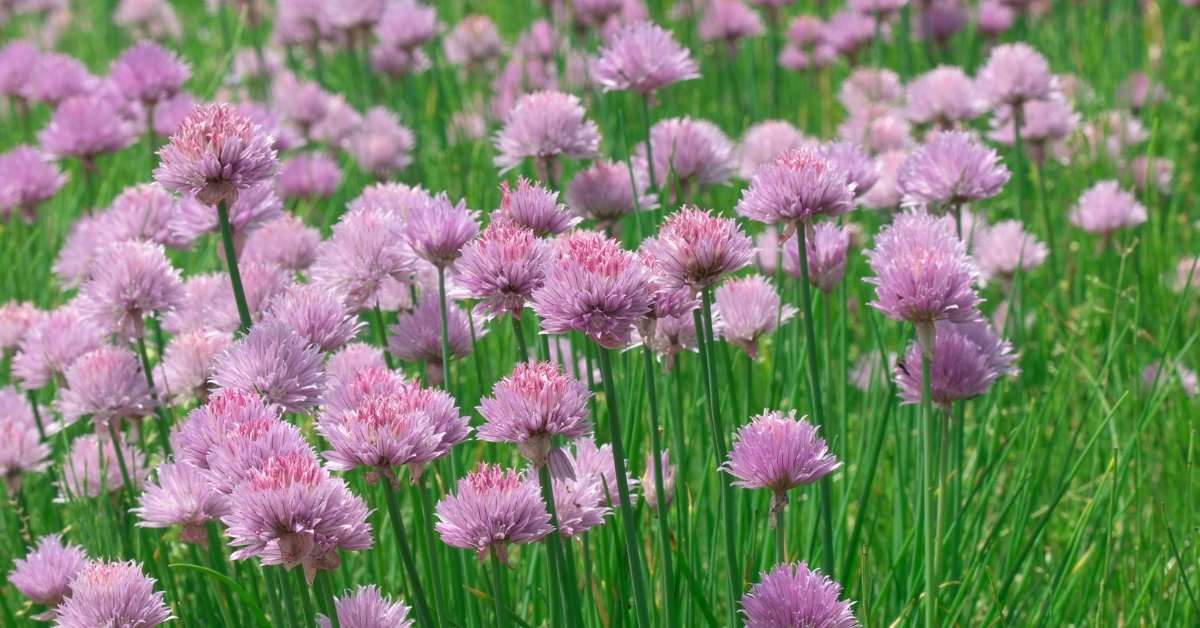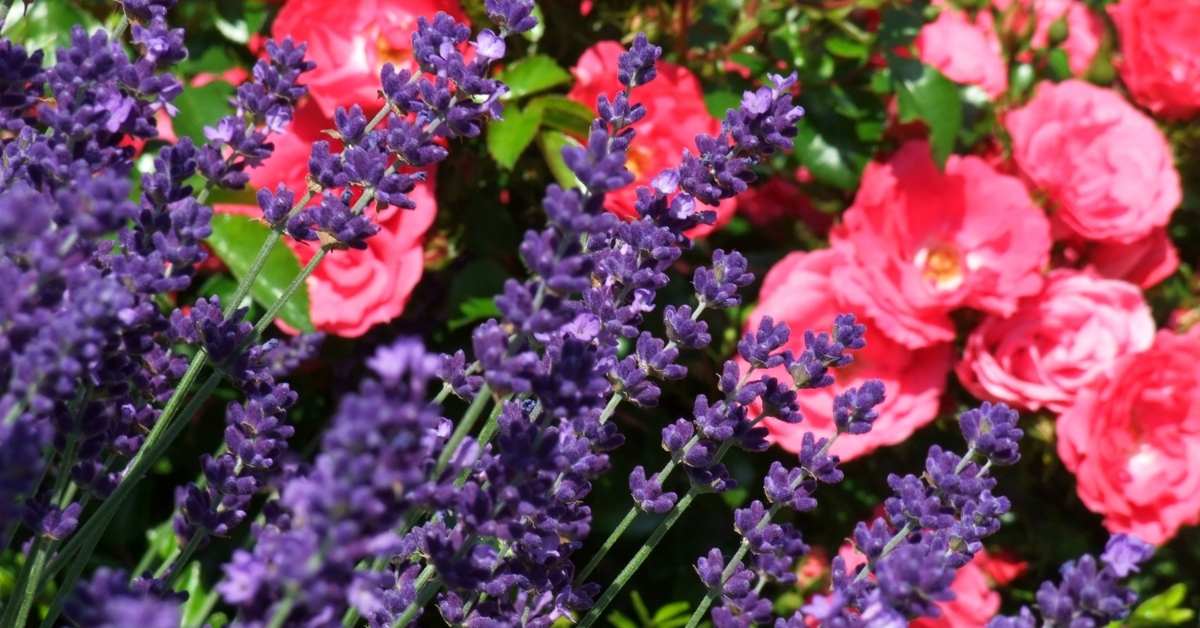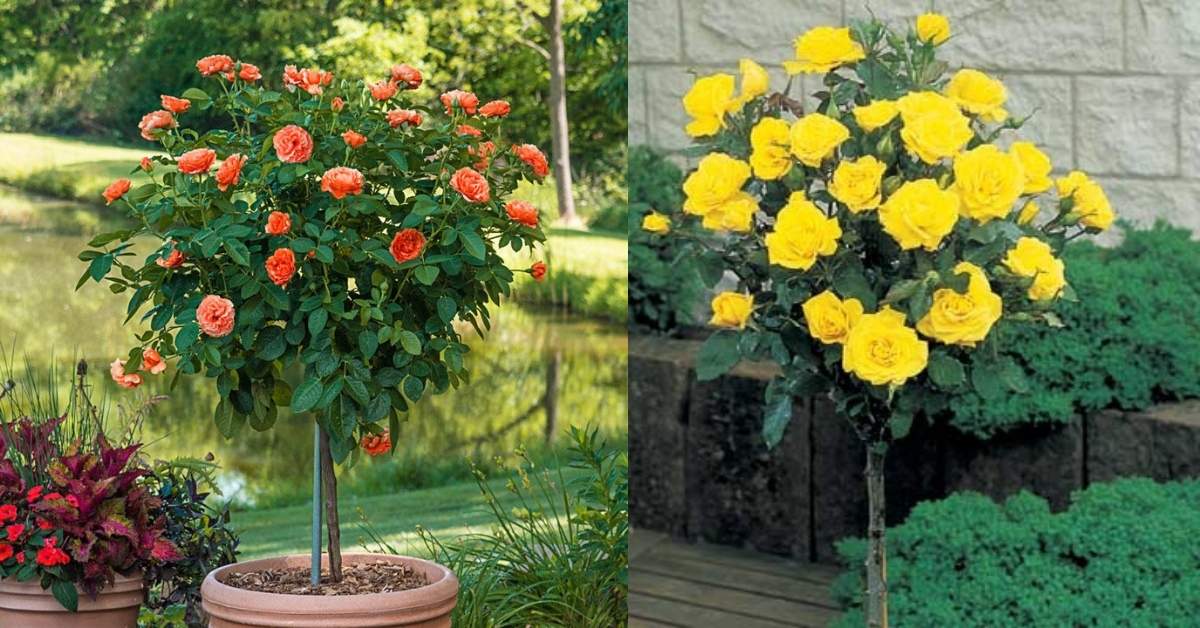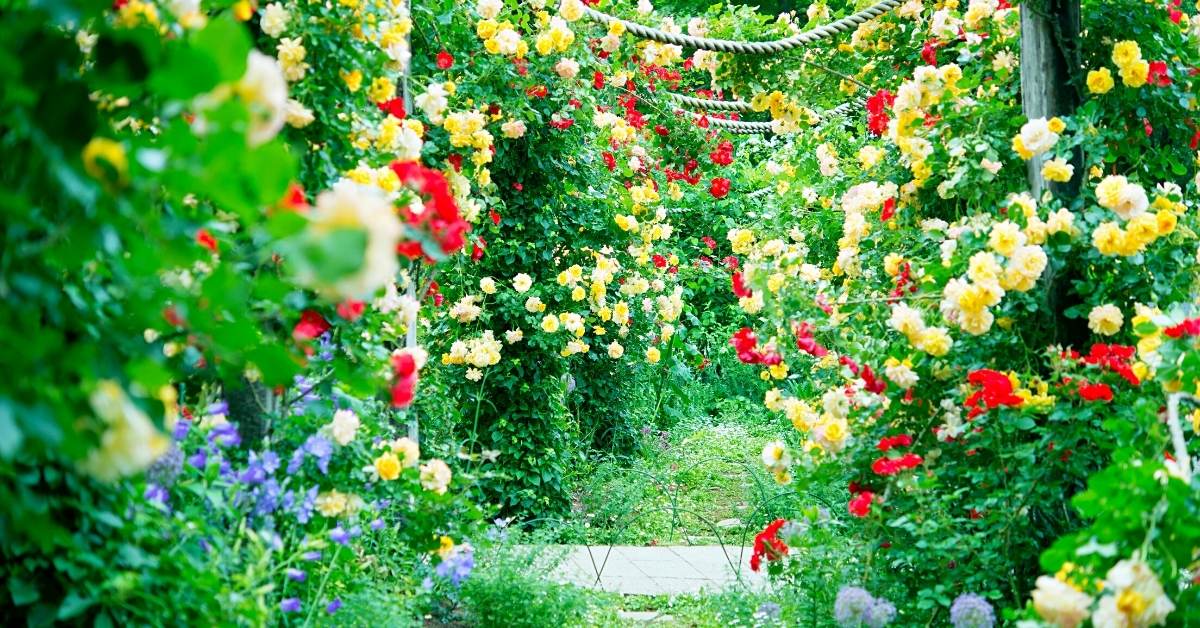Roses and Herbs, no two groups of plants are more synonymous with fragrance. For centuries, roses were grown as much for their flower’s medicinal qualities as for their beauty and luscious scent. Naturally then, they were planted together with herbs. Here is the list of best herbs to grow with roses.

Besides this traditional association, the varied foliage color, flowers, texture, and scents make herbs a natural choice for pairing with roses. Their styles complement one another, and they make perfect companions!
One benefit of pairing these groups together is the aromatic foliage of many herbs helps repel rose pests. Well-prepared soil, such as soil enriched with organic matter such as compost, will serve both roses and herbs well. Further, herbs attract beneficial species, such as butterflies and bees, to your garden.
Can roses grow with herbs?
Definitely yes! By surrounding your rose bushes with the appropriate companion plants, you may shield them from harmful insects and supply yourself with savory, fragrant herbs for use in the kitchen. If you want your rose garden to benefit from the presence of certain herbs, you might think about growing culinary sage, thyme, lavender, basil, chamomile, and rosemary.
If you are wondering what to grow with roses, here are the best companion herbs with roses.
Best Herbs To Grow With Roses:
- Artemisia
- Catmint
- Chamomile
- Garlic and Chives
- Common Sage
- Paramount Parsley
- Siam Queen Thai Basil
- Hyssop
- Lavender
- Thyme
- Scented Geraniums
One of my favorite combinations is pink shrub roses mixed (interspersed) with lavender. Absolutely gorgeous and a true garden standout! In addition, lavender helps deter rabbits who sometimes like to munch on newly planted roses.

Companion planting with roses seems to work best with shrub roses, climbers, and Knock Out roses. Hybrid tea roses, while beautiful, tend to like their own space and do well without competition from other plants. They don’t like other plants growing around their roots and tend to need extra care or spraying, which doesn’t mix well with the edibles.
What should you not plant around roses?
Contrary to the above-mentioned plants, there are also some which are not suitable to grow with roses.
To grow, bunchberry requires a lot of water and should be planted in the shade.
Toad lilies need soil that drains well yet thrives in complete darkness for the greatest results.
Leopard plants thrive in cool, shady environments and need slightly alkaline, consistently damp soil.
Along with nutrient-dense and wet soil, the presence of fuchsia shade is necessary for the success of this plant.
FAQ – Rose companion plants
Is Basil good to plant with roses?
Growing basil throughout the garden is beneficial since it is one of the most effective companion plants there are. It will protect against mosquitoes, white flies, aphids, and fruit flies. Because there is such a broad range of basils, including one with shorter, more compact growth that can be planted under rose bushes, it is simple to incorporate them into the surrounding environment.
Can I plant mint with roses?
Yes. Mint repels ants and aphids, but you should exercise caution around it since it has a high potential for becoming invasive and uncontrollable.
What to put around rose bushes?
Mulch may be made from a variety of materials, including wood chips, straw, or even dried grass clippings. It’s also possible to employ materials with a more ornamental purpose, such as shredded hardwood bark or cocoa bean hulls, for example. It is recommended to mulch at a depth of approximately two to three inches and to refill it as necessary.
Can you plant rosemary with roses?
The fact that they need the same amount of sunlight, soil that is well-drained, and hydration all during the growth process makes them excellent companion plants. The rosemary will trail over the edges of the container and provide a gorgeous evergreen backdrop for the rose blossoms that are a cerise color.
How do you layout a rose garden?
Give each rose in your rose garden a place that is the same width as the plant will be when it reaches its full height. For instance, if the tag on a rose states the plant will grow to be four to five feet tall, you should leave it two to two and a half feet of space on both sides. When it comes time to trim your roses, you’ll be thankful for the generous spacing you gave them.
Do marigolds help roses?
Use the types with a slower growth rate to offer stunning colors that enhance the rose bed. It is well known that marigolds may deter a wide variety of insect pests and contribute to the management of dangerous nematodes.
Is garlic good for roses?
Yes. Garlic is supposed to boost the smell of roses, as The Herb Society of America stated. In addition to assisting in the prevention of aphids and fungal infections, garlic is also beneficial in this regard.

